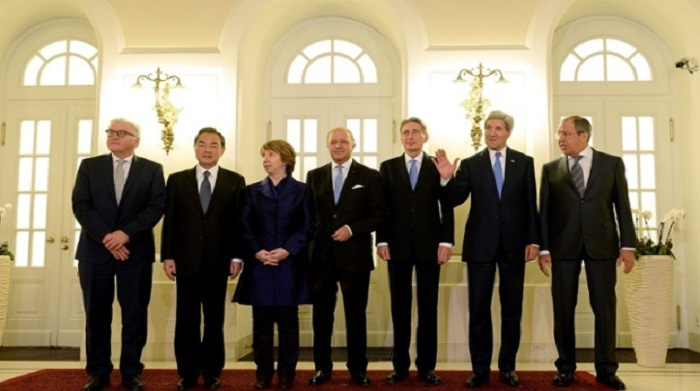West’s Escalating Demands Threaten the Nuclear Talks

United States is now playing brinksmanship with the nuclear talks by leveling excessive demands, instead of leveling the playing the field. While its mouthpieces, such as Robert Einhorn, look only in one direction and pretend that the ball is in Iran's lap and Tehran has to "make the tough decisions," in actuality it is Washington that is to blame for the slow progress in nuclear talks, by constantly throwing speed bumps in the process that raise questions about the American intentions.
According to President Hassan Rouhani in his recent interview, reaching the targeted June 30th deadline is still possible as long as the other side sticks to the terms of agreement reached in Lusanne in early April and refrains from introducing new demands. There are reportedly several important gaps remain, pertaining to number of centrifuges, centrifuge R & D, timeline for lifting the sanctions, the question of access to Iran's military sites and nuclear scientists, and the fate of Iran's enriched uranium. Also, there is an unconfirmed report that the U.S. is now seeking to lower the enrichment level under a final deal to mere 2 percent. All in all, the U.S. appears to be escalating its demands as we get closer to the nuclear deadline, instead of showing flexibility and mood for compromise. As a result, even the U.S. Secretary of State, who is on record repeatedly stating that he was "optimistic" about meeting the deadline, now is revising himself and claiming (falsely of course) that he never said he was optimistic, only hopeful.
But, it may turn out to be a hope against hope if the Americans continue with their present spoiler game and ultimately derail the process through their dangerous diplomatic brinksmanship. Even the usually reticent Chinese diplomats have cautioned the Western powers involved in the nuclear talks to stick to the parameters of Lausanne agreement and do not introduce new demands. Henceforth, if the talks fail then Washington and its Western allies ought to be blamed for it.
The question is, of course, what is behind the American brinksmanship? The self-righteous U.S. pundits such as Einhorn present no clue, as it the U.S. has clear and unambiguous objectives. On the contrary, the so-called "non-proliferation concerns" that officially drive the Western diplomacy in these talks are increasingly subsumed by the non-nuclear, e.g., power projection, needs and agenda of U.S. foreign policy, thus reflecting a paradox of preferences of on the one hand seeking a final deal and, yet on the other hand, favoring a stalemate that would benefit the American hegemonic goals in the Middle East. Indeed, an important other question is : does a final nuclear deal with Iran spell new troubles for U.S. hegemony -- that has revolved to some extent around the concept of "containing Iran"? There is a growing concern in Iran that the U.S. does not mind if the nuclear crisis lingers for many more years, given the side-benefits that includes the perpetual U.S. dependency of some regional states under the guise of containing the "nuclearizing Iran." In other words, the U.S. is not really concerned about Iran since it knows Iran has no nuclear weapons intentions and simply wants to harvest the dividends of a "crisis of choice, not necessity."
Indeed, as professor Shireen Hunter has rightly stated in a recent article, if Washington does not really want a deal, then it must continue doing what it does now, otherwise it must change course. The path to a final deal cannot be strewn with bad intentions, and the definition of good intentions does not seem to fit the present American, and to a lesser extent French, behavior; the latter's behavior is clearly shaped by financial and trade considerations, given Paris's recent cozying with the Saudi-led Gulf Cooperation Council. It is of course no secret that Paris would be sacrificing aspects of its own interests, e.g., the car manufacturing sector, if there is no deal at the end of the day, given the stated desire of French car companies to return to the Iranian market.
In light of the above-said, the road ahead appears forked at a critical junction that leads to impasse on one side and breakthrough on the other, and in many important respects the ball is in the lap of Washington policy-makers to decide how they are going to conduct themselves in the next few weeks? One can only hope that they refrain from the present destructive pattern of deal- breaking instead of deal-making, otherwise the whole world will blame them.

